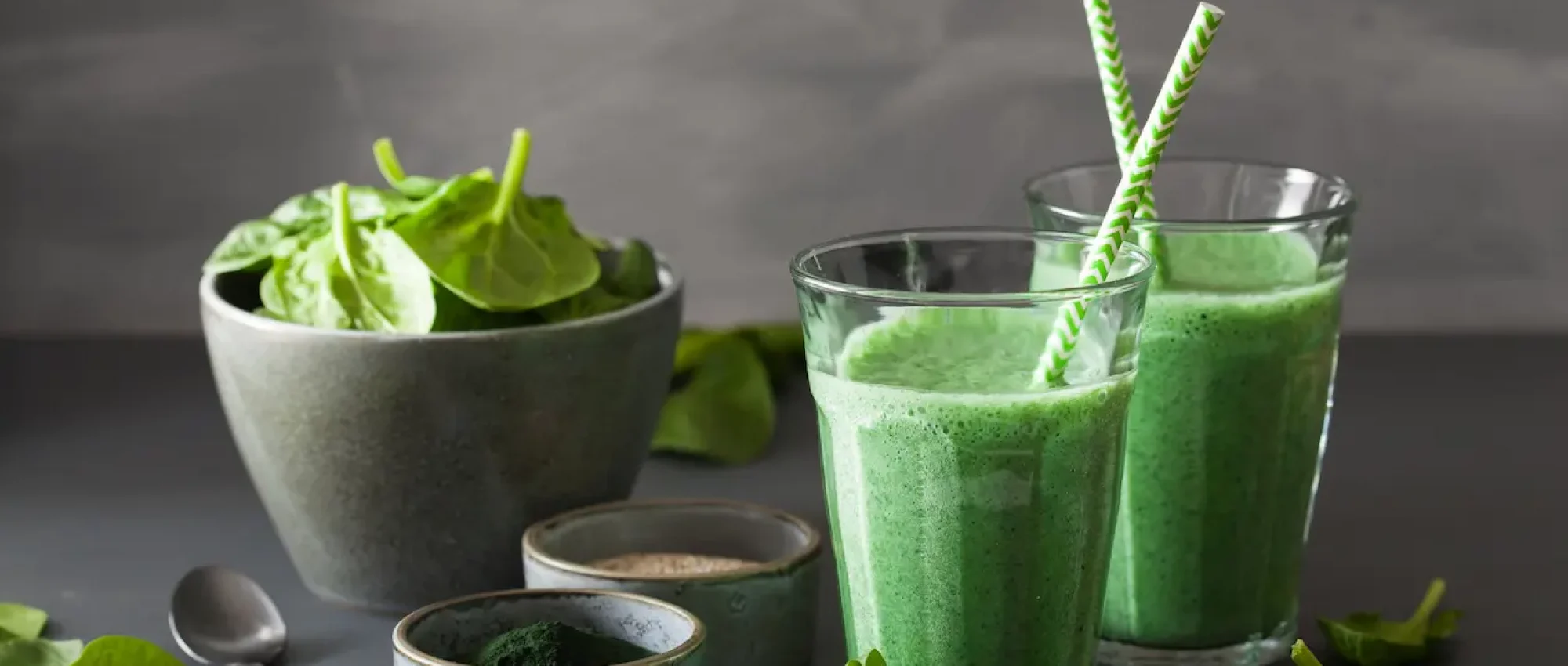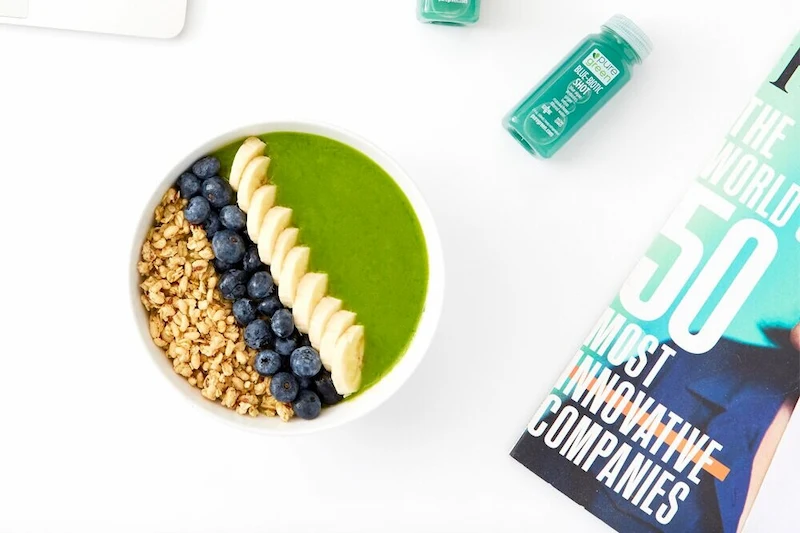Are smoothies healthy?
Smoothies have become synonymous with healthy eating. They are often an integral part of diets and cleanses. And, of course, we’ve all noticed the massive rise in juice and smoothie places over the past decade or so, but are smoothies truly healthy? With all of the variety of nutrition information out there, it can be confusing trying to figure out what is good for you and what is just a trend. A Smoothie bowl can be a very effective and yummy way to get a big hit of fruits and veggies, especially for people on the go.
Smoothies have become synonymous with healthy eating, often featuring prominently in diets and cleanses. With the significant rise in juice and smoothie bars over the past decade, it’s natural to question, “Are smoothies healthy?” In the midst of varying nutrition information, it can indeed be challenging to discern what genuinely benefits your health and what is merely a passing trend.
When considering if smoothies are healthy, it’s essential to look at their ingredients. A well-crafted smoothie can be an incredibly effective and delicious way to consume a concentrated dose of fruits and vegetables, which is particularly beneficial for people with busy lifestyles. However, the health value of a smoothie largely depends on its components. Smoothies packed with fresh, whole fruits and vegetables, and minimal added sugars or high-calorie ingredients can be a nutritious choice.
It’s also important to consider portion sizes when asking, “Are smoothies healthy?” Even with healthy ingredients, consuming large quantities can lead to excessive calorie intake. Balancing your smoothie with sources of fiber, healthy fats, and proteins can also enhance its nutritional profile, making it a more satisfying and balanced meal or snack.
Furthermore, when making smoothies at home, you have complete control over the ingredients, allowing you to tailor your beverage to your nutritional needs and preferences. This control is often lost with store-bought smoothies, which may contain added sugars, preservatives, or other less healthy ingredients.
Here are some important smoothie facts to make sure that you’re taking advantage of this health trend in the right way.
Find the Right Combo
Watch out For Additives
Many store-bought smoothies, and even some smoothie bars, include all kinds of added sugars and refined fibers in their smoothies which change the way that smoothies interact with your body. Even bottled smoothies that claim that have no added sugar, often include juice from concentrate, which is highly processed, devoid of nutrients, and acts like sugar in your body. This is why, especially during a juice cleanse, it’s a good idea to either make your own smoothies at home or ensure that the juice bar uses whole fruits (not pre-made mixes) and makes each smoothie fresh to order.
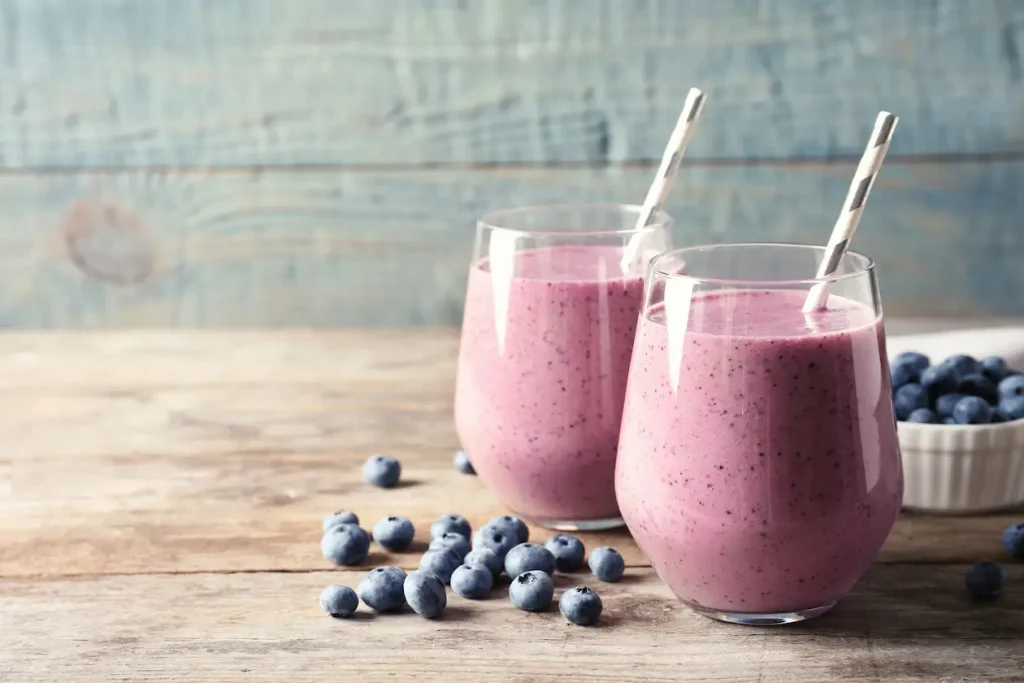
Everything in Moderation
While a smoothie for breakfast or a late-afternoon snack can be a great way to fill you up on the go, you probably don’t want to get into a multiple smoothie-a-day kind of habit. Smoothies can be very high in calories so it’s important to limit the number of smoothies you have on a daily basis. You also want to take into account other activities. Is this a pre-run smoothie? Maybe you need a bit more of a protein hit to get you through. Just wanted a nice afternoon snack? Something with a hit of greens could be more appropriate.
When assessing if smoothies are healthy for your lifestyle, consider the context of your other activities. For example, if you’re planning a pre-run smoothie, you might want to boost the protein content to provide sustained energy for your exercise. Ingredients like protein powder, Greek yogurt, or nut butters can be excellent for this purpose. On the other hand, if you’re looking for a light afternoon snack, a smoothie with leafy greens like spinach or kale can be refreshing and less calorie-dense, while still providing essential nutrients.
The healthiness of smoothies largely depends on their ingredients and how they fit into your overall dietary pattern. By carefully choosing your smoothie ingredients and being mindful of their frequency, you can enjoy these delicious and convenient drinks as part of a healthy diet. Remember, moderation and balance are key in determining whether smoothies are healthy for you.
Choose Your Base Wisely
A base of fruit juice might taste delicious, but it is definitely going to up the sugar content of your smoothie. Choosing unsweetened non-dairy milk like oat, cashew, or almond can be a great way to add in some healthy fat and improve satiety without increasing the amount of sugar per serving. It will also help to round out the nutrients and flavor of the smoothies, creating a richer, creamier drink. Almond butter, Greek yogurt, peanut butter smoothie bowl will be wise decisions for health. You should not use any kind of protein powder in your smoothie bowl.
A pineapple smoothie bowl can be a proper smoothie recipe for you. You can add frozen fruit, chia seed, almond butter, ice cream, banana, peanut butter, other fruits containing vitamin c. This smoothie recipe provides you with the best taste that you need. Properly made smoothies are real smoothie king.
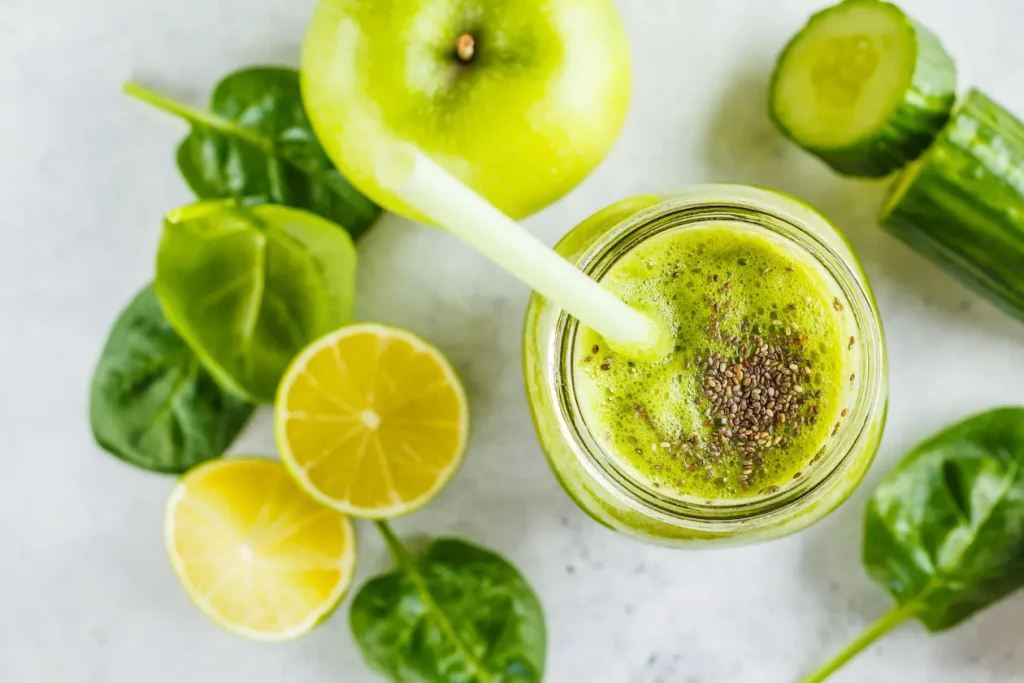
Add in Some Greens
Including a handful or two of leafy greens in each green smoothies definitely helps to raise the health factor. Most Americans struggle to get their full serving of veggies each day, and smoothies can be a great way to eat more greens. Leafy greens especially have a ton of benefits that are hard to get from other foods, such as vitamin A and K, and they are super-rich in fiber. The best part is that by tossing them in a smoothie, you can often barely tell they’re there. It is a really great way to get picky eaters and children to consume more vegetables.
Green smoothies with Greek yogurt, chia seed, banana, almond milk, milk, almond butter, strawberry, nut butter give the proper taste. You also take fruit juice like apple juice, orange juice, coconut water with a green smoothies bowl.
Bigger isn't Better
Because smoothies are so calorie-dense, you’re not necessarily doing yourself any favors by getting the trenta. Smoothies can pack a major punch in a pretty small container, so make sure to keep an eye on the portions. If you wouldn’t normally eat an entire peach, half a mango, and 10 strawberries in one sitting, maybe tossing all of that into a smoothie is a bit overkill. If you are weight conscious, you’ll want to keep an eye on the calorie count of your smoothie and think about how many calories you normally consume for a meal. Frozen fruit added sugar is also not much better than fresh fruit.
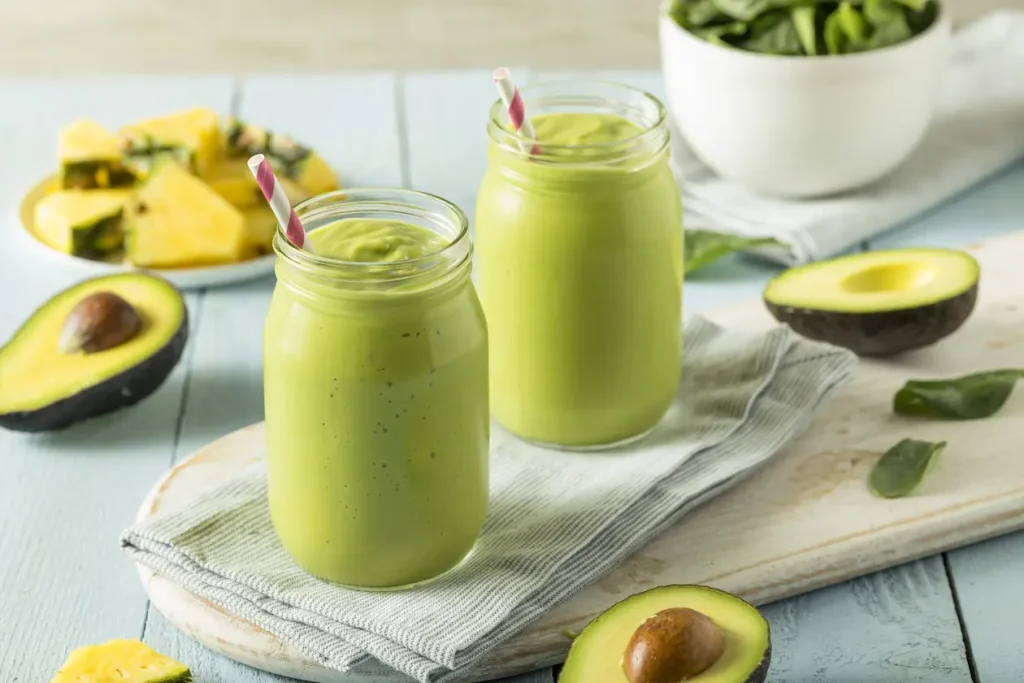
Learn your Healthy Fats
There are tons of food that naturally have fat that your body needs and adding these to a smoothie can help add a health punch to any drink. They also help fill you up and keep you satisfied for longer, so it is especially important to include these if you’re using the smoothie as a meal replacement. Some examples of healthy fat foods are chia seeds, unsweetened nut butter or whole nuts, hemp, and ground flax seeds. They can also add a bit of texture and crunch to the smoothie, which helps your body translate the smoothie into a meal and improves satiety. Banana smoothie is another favorite smoothie recipe for all.

Slow Down

Conclusion
So are smoothies healthy? Absolutely, but just as with any food, it’s important to make good, conscious choices when having a smoothie. This means choosing good quality ingredients, incorporating a variety of different types of foods, and thinking about the timing and use of the smoothie. We here are Pure Green are dedicated to only using the very best ingredients, and never including added sugars or sweeteners! It’s all about finding the right balance for you and your body, and a smoothie can be a great, healthy addition to any diet.
